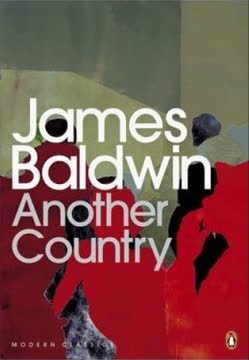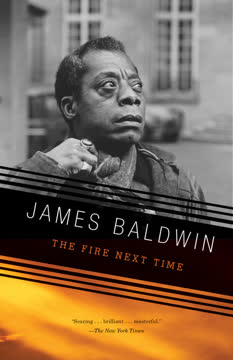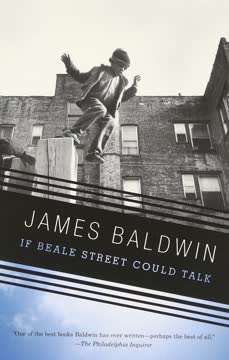Plot Summary
Midnight on Seventh Avenue
Rufus, a talented Black jazz musician, is adrift in the city after a long, sleepless day. He is broke, hungry, and haunted by memories of better times and the weight of his own isolation. The city's indifference is palpable as he drifts from movie theaters to jazz clubs, too ashamed to enter, too desperate to leave. His thoughts spiral through his family—his proud sister Ida, his parents, and the Harlem streets that shaped him. The city's relentless pressure and his own sense of failure press in, setting the stage for his tragic journey.
Leona's Shadow
Rufus meets Leona, a white Southern woman, at a Harlem club. Their connection is immediate, charged with both sexual energy and the tension of their racial and personal histories. Leona, escaping her own traumas, finds solace in Rufus, but their relationship quickly becomes fraught. The city's racism and their own insecurities poison their intimacy. Rufus's anger and self-loathing manifest in violence toward Leona, and her mental health deteriorates. Their love, meant to be a refuge, becomes another site of pain and destruction.
Harlem's Beat, Village's Gaze
Rufus's only real friend, Vivaldo, a white aspiring writer, tries to support him, but their friendship is strained by unspoken resentments and the city's racial divides. The bohemian circles of Greenwich Village—populated by Cass and Richard, an intellectual couple, and Jane, Vivaldo's troubled lover—offer little sanctuary. The group's attempts at solidarity are undermined by their inability to truly understand each other's pain, especially the pain of being Black in America. The city's liberalism is revealed as shallow, and the characters' relationships are marked by misunderstanding and betrayal.
The Descent of Rufus
Rufus's life unravels as he loses work, love, and hope. He drifts through the city, selling his body for food and shelter, haunted by memories of his family and his failed relationships. His friendship with Vivaldo is tested to the breaking point, and his violence toward Leona leads to her institutionalization. Rufus's sense of self is eroded by racism, poverty, and guilt. Unable to find solace in music, friendship, or love, he ultimately chooses to end his life, jumping from the George Washington Bridge.
Vivaldo's Vigil
Rufus's suicide devastates his friends, especially Vivaldo, who is left to grapple with guilt and confusion. Vivaldo's relationship with Ida, Rufus's sister, becomes central as he seeks redemption and understanding. The group gathers for Rufus's funeral, each mourning not just Rufus but their own illusions about race, love, and art. Vivaldo's struggle to write his novel mirrors his struggle to make sense of his life and the world around him.
Ida's Song
Ida, determined and proud, pursues a career as a jazz singer. Her relationship with Vivaldo is passionate but fraught with the same racial and gender tensions that destroyed Rufus. Ida's music becomes a way to process her grief and assert her identity, but she is also drawn into the exploitative world of white patrons and lovers. Her journey is one of survival, resilience, and the search for dignity in a world that constantly tries to define and limit her.
Cass and Richard's Rift
Cass and Richard, once the model of bohemian partnership, are torn apart by Richard's literary success and Cass's affair with Eric, a bisexual actor. Their relationship, built on mutual support and intellectual companionship, is revealed to be fragile and full of unspoken resentments. Cass's longing for passion and authenticity leads her to Eric, while Richard's insecurity and jealousy drive him to cruelty. Their story is a meditation on the limits of love, the cost of compromise, and the difficulty of truly knowing another person.
The Weight of Color
Throughout the novel, the characters' lives are shaped by the realities of race in America. Interracial relationships—Rufus and Leona, Vivaldo and Ida—are fraught with suspicion, fetishization, and violence. The white characters' attempts at understanding are often patronizing or self-serving, while the Black characters carry the burden of history and daily indignity. The city itself is a battleground, and every act of love or friendship is shadowed by the possibility of betrayal and misunderstanding.
Eric's Exile
Eric, a white Southern actor, leaves New York for Paris to escape the shame and confusion of his sexuality and his failed relationship with Rufus. In Paris, he finds love with Yves, a young Frenchman, and a measure of peace. Yet, the past is never far behind, and Eric's return to New York is haunted by memories of Rufus and the unresolved tensions of his own identity. His story is one of exile and return, of the search for a place to belong.
Parisian Interlude
In the South of France, Eric and Yves build a life together, free from the immediate pressures of American racism and homophobia. Their relationship is tender and passionate, marked by mutual care and the hope of a future together in New York. Yet, Eric's memories of Alabama, his family, and Rufus linger, reminding him that the past cannot be escaped, only integrated. The interlude is a brief respite before the return to the city's turmoil.
Return to New York
Eric's return to New York brings him back into the orbit of Cass, Vivaldo, and Ida. The group's dynamics are reshaped by new alliances and betrayals. Cass and Eric's affair is both a source of comfort and a catalyst for further pain. Vivaldo, struggling with his own sexuality and his relationship with Ida, finds unexpected intimacy with Eric. The city's pressures—artistic, sexual, racial—intensify, and the characters are forced to confront the truths they have long avoided.
Ida's Confession
Ida, under pressure from Vivaldo and her own conscience, confesses to an affair with Ellis, a white television producer who has helped her career. Her confession is both an act of honesty and a reflection of the compromises she has had to make as a Black woman in a white world. Vivaldo is devastated, but the revelation forces both to confront the realities of their relationship and the world they inhabit. The confession is a turning point, marking the end of illusions and the beginning of a more difficult, honest love.
The Unraveling
The group's interconnected relationships reach a breaking point. Cass and Richard's marriage collapses after her affair with Eric is revealed. Vivaldo and Ida's relationship is tested by jealousy, betrayal, and the legacy of Rufus's death. Eric, caught between Cass and Yves, must choose between past and future. The city's heat and violence mirror the characters' internal chaos, and each is left to reckon with the consequences of their choices.
Rain and Revelation
A torrential rainstorm becomes the backdrop for a series of confessions and reconciliations. Vivaldo and Eric, drunk and vulnerable, share an intimate night together, blurring the boundaries of friendship and desire. Cass and Richard confront the truth of their marriage, and Ida and Vivaldo finally speak honestly about their pain and love. The rain washes away some of the bitterness, but the future remains uncertain.
The Last Embrace
As the summer ends, the characters gather what remains of their relationships and dreams. Eric welcomes Yves to New York, hoping for a new start. Cass and Richard, though wounded, attempt to rebuild their marriage for the sake of their children. Ida and Vivaldo, changed by all they have endured, try to find a way forward together. The city is still harsh, but there is a sense of possibility, however fragile.
Toward Bethlehem
The novel closes with the characters moving forward, scarred but not defeated. They have lost friends, lovers, and illusions, but they have also gained a deeper understanding of themselves and each other. The city remains a place of struggle, but also of hope. The journey toward love, acceptance, and belonging is ongoing, and the final note is one of tentative faith in the possibility of redemption.
Characters
Rufus Scott
Rufus is the emotional center of the novel, a talented jazz drummer whose life is undone by the intersecting forces of racism, poverty, and personal despair. His relationships—with Leona, Vivaldo, and his family—are marked by both tenderness and violence. Rufus's inability to reconcile his need for love with the world's hostility leads to his self-destruction. He embodies the pain of being Black in America, the longing for connection, and the destructive power of shame. His death reverberates through the lives of everyone who loved him.
Vivaldo Moore
Vivaldo is Rufus's closest friend, a white novelist struggling to find his voice and his place in the world. His relationships—with Jane, Cass, Ida, and eventually Eric—are marked by both genuine affection and deep insecurity. Vivaldo's liberal ideals are tested by his own prejudices and desires, and his love for Ida forces him to confront the limits of his understanding. His journey is one of self-discovery, guilt, and the search for authentic connection across the boundaries of race and sexuality.
Ida Scott
Ida, Rufus's younger sister, emerges as a powerful voice in the aftermath of her brother's death. Determined to succeed as a jazz singer, she navigates the dangers and compromises of being a Black woman in a white-dominated world. Her relationship with Vivaldo is passionate but fraught, shaped by the legacy of racism and the need for survival. Ida's strength lies in her refusal to be defined by others, but her vulnerability is revealed in her moments of confession and longing for love.
Leona
Leona is Rufus's lover, a white woman from the South fleeing her own traumas. Her relationship with Rufus is both a refuge and a battleground, marked by moments of tenderness and episodes of violence. Leona's inability to escape her past and Rufus's rage leads to her breakdown and institutionalization. She represents the intersection of race, gender, and class, and the ways in which love can be both redemptive and destructive.
Cass Silenski
Cass is Richard's wife, a New Englander whose marriage is tested by ambition, betrayal, and the search for meaning. Her affair with Eric is both an escape and a confrontation with her own desires. Cass's journey is one of self-knowledge, as she moves from the safety of marriage to the uncertainty of independence. Her relationships with Ida and the other women in the novel reveal the complexities of female friendship and solidarity.
Richard Silenski
Richard, Cass's husband, is a Polish-American novelist whose success brings both pride and alienation. His marriage to Cass is built on mutual support but is ultimately undone by jealousy and the inability to communicate. Richard's struggle to balance artistic ambition with personal fulfillment mirrors the larger themes of the novel. His reactions to betrayal and loss reveal the limits of his understanding and the depth of his need for control.
Eric Jones
Eric is a white Southern actor who flees America for Paris to escape the shame of his sexuality and his failed relationship with Rufus. In Paris, he finds love with Yves, but his return to New York reopens old wounds. Eric's relationships—with Cass, Vivaldo, and Yves—are marked by both tenderness and confusion. His journey is one of exile and return, of the search for a place to belong, and of the difficulty of reconciling past and present.
Yves
Yves is Eric's lover in Paris, a young man marked by his own history of poverty and survival. Their relationship is a source of joy and hope, a respite from the pain of the past. Yves's arrival in New York represents the possibility of a new beginning, but also the challenge of building a life together in a world that is often hostile to difference.
Jane
Jane is Vivaldo's lover, an older woman whose relationship with him is marked by mutual need and resentment. Her struggles with addiction, insecurity, and artistic failure mirror the larger themes of the novel. Jane's presence in the group is both a source of comfort and a reminder of the dangers of self-delusion.
Steve Ellis
Ellis is a television producer who becomes involved with Ida, offering her both professional opportunities and personal exploitation. He represents the seductive power of white patronage and the compromises that Black artists are often forced to make. His relationships with the other characters are marked by a mixture of generosity, self-interest, and emotional detachment.
Plot Devices
Interwoven Narratives and Shifting Perspectives
Baldwin structures the novel through a series of interlocking stories, each told from the perspective of a different character. This narrative device allows the reader to see the same events through multiple lenses, highlighting the ways in which race, gender, and class shape perception. The shifting perspectives create a sense of intimacy and distance, forcing the reader to confront the impossibility of fully knowing another person's experience.
The City as Character
The city is more than a backdrop; it is an active force in the novel, shaping the characters' lives and relationships. Harlem, Greenwich Village, and the wider city are sites of both possibility and danger, reflecting the characters' hopes and fears. The city's relentless pace, its divisions and its indifference, serve as both a crucible and a prison.
Music and Performance
Music is a recurring motif, symbolizing both the possibility of transcendence and the reality of suffering. Rufus's drumming, Ida's singing, and the blues that echo through the novel are ways for the characters to process pain, assert identity, and reach for connection. Music becomes a language of survival, a means of expressing what cannot be spoken.
Racial and Sexual Transgression
The novel's central relationships cross lines of race and sexuality, exposing the characters to both liberation and danger. These transgressions are never simple acts of rebellion; they are fraught with the weight of history, desire, and the need for recognition. Baldwin uses these relationships to explore the possibilities and limits of love in a divided world.
Foreshadowing and Recurrence
Baldwin employs foreshadowing to create a sense of inevitability, especially in Rufus's decline and the unraveling of relationships. Memories, dreams, and repeated motifs—such as bridges, music, and rain—link the characters' experiences and suggest the cyclical nature of suffering and hope.
Analysis
is a searing exploration of race, sexuality, and the search for belonging in mid-century America. Baldwin's characters are driven by longing—for love, for recognition, for a place to call home—but are continually thwarted by the realities of racism, sexism, and personal failure. The novel's interwoven narratives and shifting perspectives force the reader to confront the limits of empathy and the difficulty of true connection. Baldwin refuses easy answers, showing that love, while necessary, is never sufficient to overcome the weight of history and the wounds of the world. The city itself becomes a crucible, testing each character's capacity for honesty, forgiveness, and change. In the end, the novel offers no simple redemption, but it does suggest that the act of bearing witness—to oneself and to others—is the beginning of healing. The lessons of Another Country
are as urgent now as they were in Baldwin's time: that the struggle for understanding, justice, and love is ongoing, and that the only way forward is through the hard work of truth and reconciliation.
Last updated:
Review Summary
Another Country explores complex themes of race, sexuality, and identity in 1950s New York through interconnected characters. Reviewers praise Baldwin's lyrical prose, unflinching honesty, and ahead-of-its-time depictions of interracial and same-sex relationships. Many find the character development compelling, though some note misogynistic elements. The novel's raw emotional power and relevance decades later are frequently highlighted. While some find parts slow or dated, most consider it a powerful, thought-provoking work that showcases Baldwin's keen insights into human nature and American society.
Similar Books
Download PDF
Download EPUB
.epub digital book format is ideal for reading ebooks on phones, tablets, and e-readers.

















